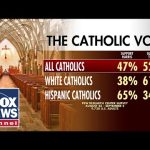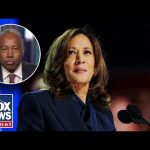The airwaves have been buzzing recently, and for good reason. President Trump’s interview with Maria Bartiromo sparked more than just headlines; it ignited a firestorm of debate in the media. In a conversation about the potential for outside agitators to disrupt the upcoming election, Trump’s comments were heavily scrutinized. Instead of focusing on the question posed, which revolved around potential unrest on election day if Trump appeared to be winning, many media outlets chose to frame the conversation as Trump advocating for military action against his political opponents.
Maria Bartiromo began her segment with urgency, emphasizing how mainstream media selectively edited the interview, downplaying her question about outside agitators. Media narratives quickly shifted from the original question to focus on Trump’s remarks about handling what he referred to as the “enemy from within.” Commentators suggested Trump was calling for military intervention against domestic critics when, in reality, the context of his comments was more nuanced. Trump was referring to the potential use of the National Guard or military to ensure order in the event of unrest—not as a tool for political warfare but as a safeguard for peaceful election proceedings.
Trump’s argument about the federal response to possible disturbances reflects a common concern among conservatives. He highlighted that the “bigger problem” could stem from radical left factions, not foreign threats. Trump’s statement that the military could be used “if necessary” was interpreted by some media outlets as a dangerous escalation. Still, his comments were more about preparing for potential unrest than targeting peaceful opposition.
Eric Trump also weighed in, expressing frustration with the media’s portrayal of his father’s words. He emphasized the longstanding pattern of biased reporting, referencing incidents like the “dirty dossier” and suggesting that this was another example of media distortion. His comments resonated with many who feel political corruption has infiltrated various American institutions. He defended his father’s concerns about potential outside agitators and unrest, pointing to the civil disorder seen during protests in recent years.
Despite the media controversy, Trump supporters continue to rally around the former president. They view the ongoing criticism as further evidence of media bias, reinforcing their belief that Trump is battling a corrupt political elite on behalf of everyday Americans. Eric Trump’s mention of grassroots support for his father’s campaign highlighted the contrast between Trump’s campaign and the big-money fundraisers often associated with Democratic campaigns.
In conclusion, the saga surrounding Trump’s interview underscores the deep cultural divide in American politics. Many conservatives feel betrayed by how the media handles critical discussions about election integrity and national security. Trump’s remarks, meant to address concerns about potential election-day chaos, have become another battleground in the war of words between political factions. As election day draws near, this debate will only intensify, leaving voters to sift through the media landscape in search of truth.




